'We Must Fight': Thailand's Youth Take On The Establishment
Leaderless, social media-savvy and inspired by Hong Kong's young activists, Thailand's budding pro-democracy movement is intent on overhauling the government, rewriting the constitution and even taking on a law that shields the monarchy.
The kingdom has seen a decades-long spin-cycle of coups and violent street protests led by well-funded veterans for or against the establishment.
But the new generation of demonstrators says its fight is very different, as they stage near-daily protests with crowds of up to several thousand angry young Thais.
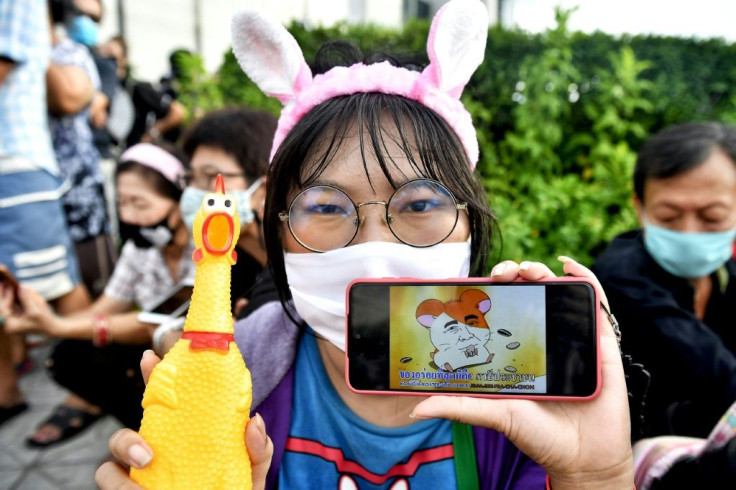
"I just want my rights," said 20-year-old Rawee, real name Nawiboon Chompoo, who helps fire up rallies with chants for reform and by burning pictures of the country's prime minister.
"The government is unreliable and bad for the people."
Premier Prayut Chan-O-Cha is a former army chief and mastermind of the 2014 coup that brought military rule back to Thailand for five years.
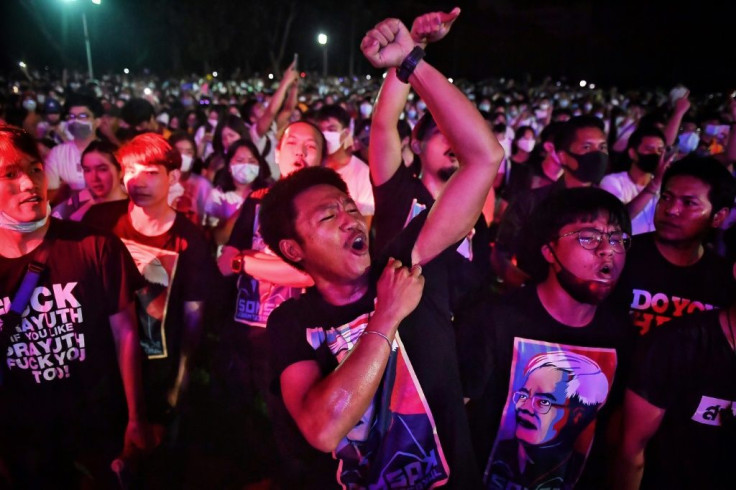
The 66-year-old became prime minister of a government packed with pro-military figures after an election last year.
Demonstrators say the election was deeply flawed, held under an army-scripted constitution that allowed junta-picked senators to have a say in appointing the premier.
Protesters are calling for a rewrite of the constitution and the dissolution of parliament.
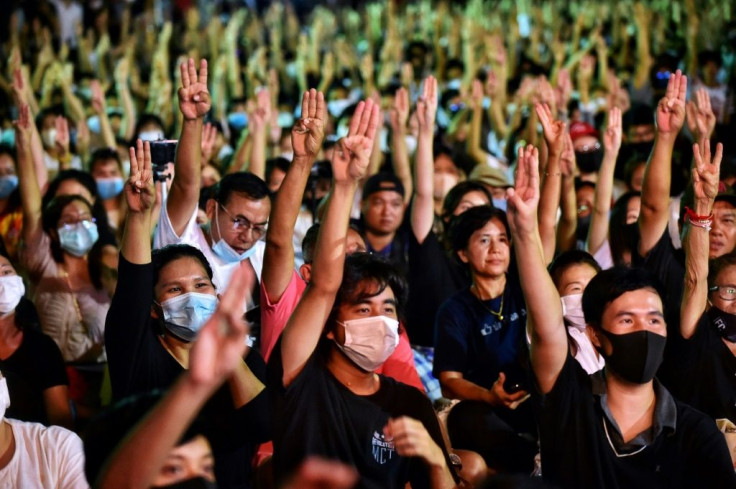
"We're partly inspired by the Hong Kong protests," said activist Tattep Ruangprapaikitseree, referring to the months-long unrest over communist China's tightening grip on the semi-autonmous city.
"We have no real leaders or organisers -- people just come out by themselves."
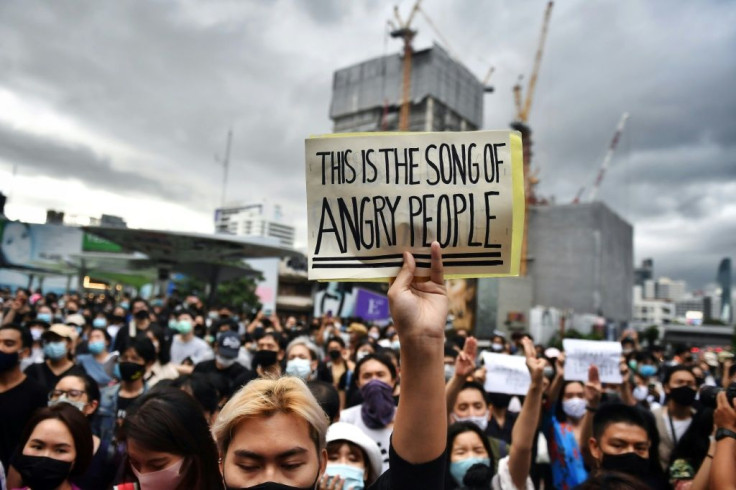
Like in Hong Kong, creativity has been a hallmark of the Thai rallies.
Protesters have borrowed pop culture symbols, including songs from Japanese cartoon Hamtaro and the musical Les Miserables, as well as the three-fingered salute from The Hunger Games movies.
They have even staged Harry Potter-themed demonstrations.
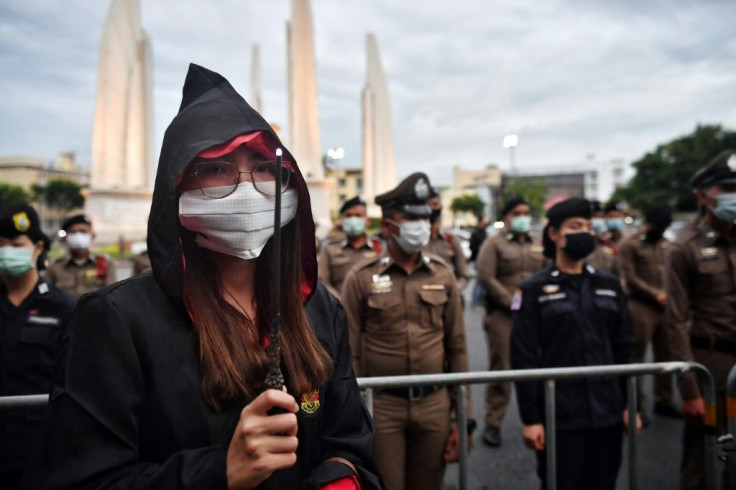
The coronavirus pandemic sent Thailand's economy into free fall, focusing already simmering discontent against the government's handling of the crisis.
Alleged human rights abuses by authorities are also fuelling anger.
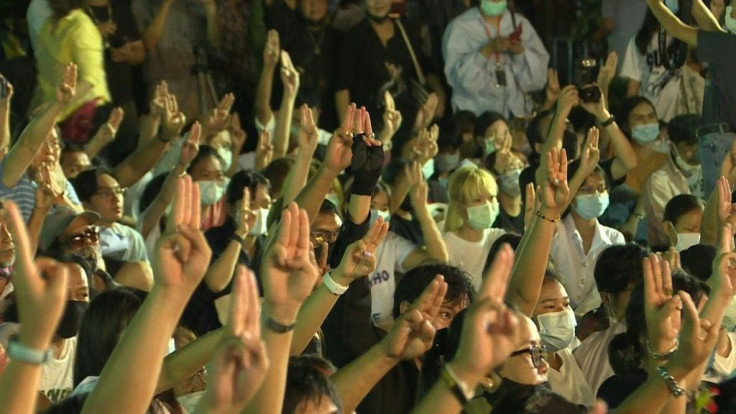
In June, the disappearance in Cambodia of Thai pro-democracy activist Wanchalearm Satsaksit sparked a Twitter campaign that spilled offline when protesters across the country demanded answers.
At least eight activists who fled Thailand since the 2014 coup have disappeared in the past two years, according to Human Rights Watch.
Most protesters support the opposition Future Forward Party, whose leaders were banned in February from politics for a decade over electoral breaches -- a move they maintain was politically motivated.
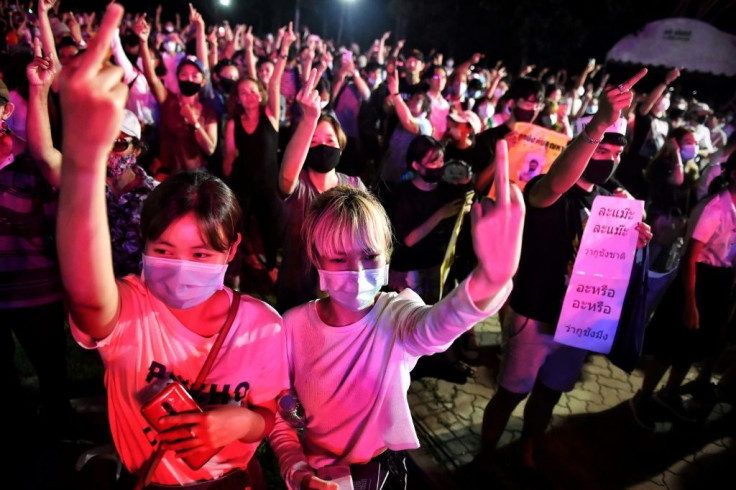
FFP's mainly young supporters saw this as more evidence that the system was stacked against them.
"We tried to play by their rules... but now there is nothing," said Rawee, who stressed that the movement was separate from the FFP, which was founded by a billionaire.
The increasingly bold movement has also waded into sensitive territory.
On Monday, about 4,000 protesters listened as organisers read out demands for Thailand's unassailable monarchy.
Many wore face masks emblazoned with a call to "End 112", referring to a controversial royal defamation law that protects the monarchy from criticism and carries a sentence of up to 15 years per charge.
Activists also called for frank discussion about the super-rich King Maha Vajiralongkorn, who sits at the apex of Thai power and took the throne from his revered father in 2016.
During his time in power, the 68-year-old king has taken personal control of royal assets and moving army units directly under his command.
Buttressing the royal family is the conservative, arch-royalist military, which has staged more than a dozen coups since the end of absolutism in 1932.
The status quo also has support.
Royalists have held counter-rallies, though with smaller numbers.
The anti-government protest movement started in February, with flash mob protests in response to the dissolution of the Future Forward Party.
Sporadic, and typically very small, gatherings that followed began to gain momentum last month, with protests occurring nearly daily.
With Monday's rally of 4,000 the largest so far, the movement has yet to gain mainstream traction, and there is no certainty they will build.
However, in a signal that authorities appear to be growing more concerned, police made their first arrests of protesters last week.
Two pro-democracy activists were arrested under charges including sedition and breaking coronavirus rules, then released on bail.
Despite the risk of arrest, prominent activist Parit Chiwarak -- also known as "Penguin" -- remains resolute.
"We must fight no matter what."
© Copyright AFP 2024. All rights reserved.




















